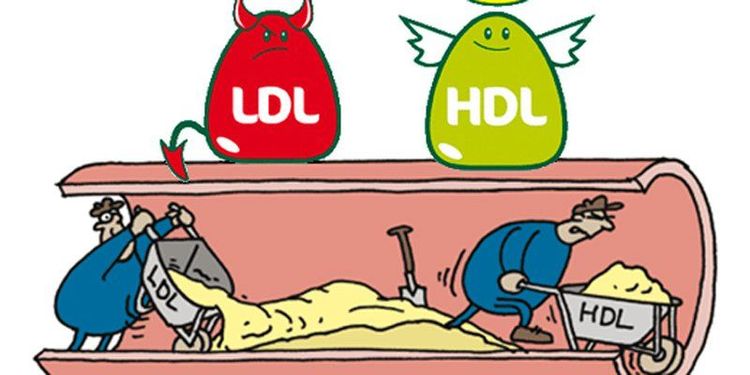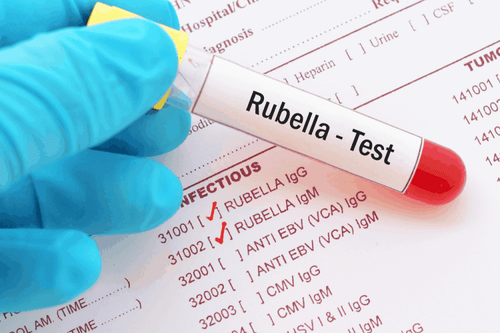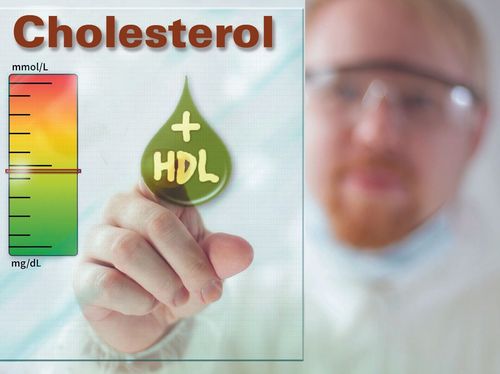This is an automatically translated article.
High blood cholesterol levels, especially bad LDL cholesterol, can lead to serious health problems, such as heart disease and stroke. To prevent disease risks and keep cholesterol levels under control, you should make a number of lifestyle changes, including adopting a healthy diet, exercising, and using healthy foods. type of medicine.
1. Types of cholesterol
Cholesterol is a fat produced naturally by the liver and found in your blood. This type of fat plays many different roles in the body, but having too much cholesterol in the blood can lead to serious health problems.
Some foods in your daily diet also contain a certain amount of cholesterol. It is found mainly in products of animal origin. For most people, eating a lot of cholesterol-rich foods will partially affect blood cholesterol levels.
In fact, your high blood cholesterol levels are mainly caused by eating foods rich in trans fats and saturated fats, excluding foods that contain fiber and unsaturated fats.
Usually there are two main types of cholesterol, including:
Low Density Lipoprotein (LDL): Also known as bad cholesterol. This type of cholesterol can increase the buildup of plaque (fat) in your arteries and increase your risk of coronary heart disease. High-Density Lipoprotein (HDL): This is the good cholesterol in the body, helping you protect and fight coronary heart disease.

Cholesterol có 2 loại LDL và HDL
2. How to determine cholesterol level?
Most people with high blood cholesterol levels feel healthy and don't have any noticeable symptoms. In general, a blood test (lipid profile) is the best way to determine if your blood lipids and cholesterol levels are high.
If your blood test shows that your cholesterol level is high, you should consult a specialist to see if you need to lower your cholesterol level or what you need to do to control your cholesterol.
In addition, the specialist may also order you to check your heart health to help prevent and detect your risks early that can lead to heart disease and stroke.
3. What causes high cholesterol levels?
Here are some of the main causes of your cholesterol becoming high in the blood, including:
Eat less foods that contain healthy fats: In fact, healthy fats can increase your cholesterol levels. your good cholesterol (HDL) level. Therefore, when consuming too little foods containing healthy fats will increase your bad cholesterol levels and reduce the level of good cholesterol in the blood. Consuming a lot of unhealthy fats: Eating a lot of foods that contain unhealthy fats (including saturated and trans fats), such as fried foods, baked goods, cakes or cookies, which can raise the level of bad cholesterol in your blood. Eat less foods that contain fiber: Foods rich in fiber, especially soluble fiber, have the ability to lower the amount of bad LDL cholesterol in your blood. As a result, consuming less fiber can also make it more difficult to control your cholesterol. You should try to add more fiber to your diet through vegetables, fruits, nuts and whole grains. Consume a lot of foods that contain cholesterol: This can also have a partial impact on your blood cholesterol levels. Genetic factors: Your family history can also affect your cholesterol levels. This condition is also known as familial hypercholesterolemia. Some people's cholesterol levels can be elevated even when they follow a healthy, well-balanced diet low in trans fats and saturated fats. For this case, you may have to use cholesterol-lowering drugs as prescribed by your doctor.
The link between cholesterol and daily diet What you eat every day can have a significant impact on your cholesterol levels. In general, a healthy diet is considered an important key to helping you reduce your risk of disease, while helping to provide the body with essential nutrients.
Here are some nutritionists' advice on a healthy diet for people with high cholesterol:
Add a variety of green vegetables, whole grains and fresh fruits. Consume healthy sources of protein, such as fish, seafood, lentils, and nuts. In addition, eating small amounts of eggs and lean poultry also benefits your heart health. If you choose red meat, you should buy lean red meat and limit it to 1-3 times a week. People with high cholesterol or difficulty controlling cholesterol should choose reduced-fat milk and cheese. Choose healthy fats, such as avocados, nuts, olives, and vegetable oils. You can also add herbs and spices to flavor the dish instead of using a lot of salt. In addition, to help control cholesterol effectively, you also need to pay attention to the amount of food consumed daily and whether they are really healthy for the body or not.
On the other hand, many of us are now suffering from obesity and heart disease because our diets increase over time and eat more than we need. Research shows that the ideal daily diet will include 1/4 protein, 1/4 carbohydrates and 1/2 green vegetables. Portions can vary depending on your age, gender, and specific nutritional needs.
4. Healthy eating tips to control cholesterol
In addition to following a healthy and varied diet, you can try some of the following tips to help you effectively control your cholesterol:
Limit your intake of fast foods like pies , cakes, pizza, fried fish, chips, burgers and pasta dishes. Limit your intake of high-sugar snacks (only once a week), including cakes, crisps, cookies, marshmallows, and chocolate. Actively eat lots of green vegetables with 5 servings of vegetables per day. Consume breads made from whole grains. Snack on simple nuts, unsalted with sugar or salt. In addition, you should also eat with fresh fruits, ideally two servings of fruit per day. Eat at least two meals a week of legumes, such as chickpeas, peas, lentils, and kidney beans. Also, you should check food labels and choose products with the lowest salt (sodium) content. Use butter and margarine made with unsaturated fats, such as sunflower seeds, canola and wholegrains. Eat about 2-3 servings of foods rich in plant sterols each day, such as yogurt, margarine, milk, and bread. Eat 2-3 servings of oily fish per week. Each portion of oily fish corresponds to 150 grams. You can choose from fresh, canned or frozen fish. Eat up to 7 eggs per week. Choose lean meats with the fat removed and poultry without the skin. You should limit your consumption of unprocessed red meat to less than 350g a week. Limit or avoid processed meats, including hot dogs and cold cuts. If you're having a hard time controlling your cholesterol, you can reach out to a dietitian to help you establish a healthy diet for your specific individual needs.

Xây dựng một chế độ ăn uống lành mạnh để kiểm soát cholesterol
5. How to treat high cholesterol?
To effectively improve and control blood cholesterol, you should start making lifestyle changes now. Lifestyle changes include changing the foods you are consuming every day as well as increasing physical activity. These are all important keys to helping you lower high levels of LDL (bad) cholesterol in your blood.
Alternatively, you can also take cholesterol-lowering medications, such as statins, to help control cholesterol and reduce your risk of having a heart attack or stroke. To find the most suitable treatment method, you should carefully consult the specialist doctors.
Please dial HOTLINE for more information or register for an appointment HERE. Download MyVinmec app to make appointments faster and to manage your bookings easily.
References: betterhealth.vic.gov.au













